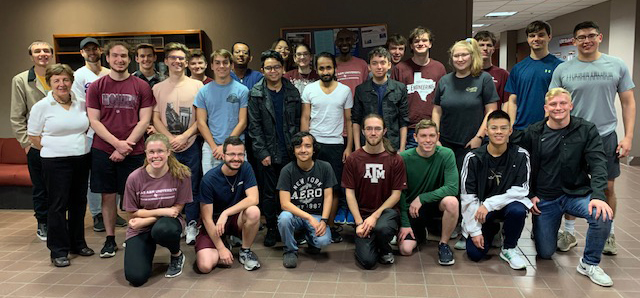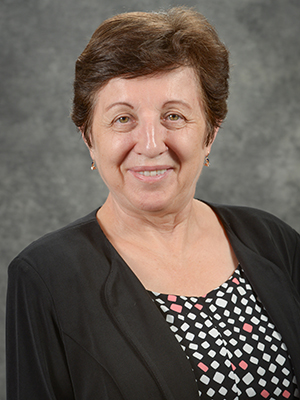
The Peer Teacher Program in the Department of Computer Science and Engineering at Texas A&M University has become an indispensable resource for undergraduate students. Despite facing budget restraints due to COVID-19, the department is hoping to expand their services with the financial support from engineering former students.
Peer teachers are high-performing undergraduate students with a desire to help others succeed in the classes that they have previously done well in. They help other students to understand the material taught in classes and labs, practice computational thinking and improve programming skills. They are in the best possible position to assist with difficult coursework, having just taken the same classes. The program supports 100-, 200- and 300-level computer science and engineering courses. Students consistently rate peer teachers as a positive impact on their performance.
The Peer Teacher Program was started with a generous grant, but has continued as part of the department’s budget after the grant expired. Over the years, the needs for the Peer Teacher Program have grown, and the department is seeking out ways to hire more peer teachers and provide more resources.

Senior lecturer Dr. Teresa Leyk has overseen the peer teacher program since the fall of 2007.
“What I don’t think people realize is that that these students are bridging a gap between faculty and students that has only grown due to physical distancing measures,” Leyk said.
For example, the CSCE 121 course has over 850 students enrolled in multiple sections, with only four instructors and nine teaching assistants.
“Not only that, but our peer teachers are mature, with an uncommon willingness to selflessly serve their fellow students,” Leyk said. “When we moved all services online, it was the peer teachers who set up the new Discord server to allow students to continue to receive help.”
These students organized this new server and the program’s new modus operandi as their program’s budget was cut by 50% due to the pandemic’s effect on the department.
“They spent many unpaid hours helping the staff and students migrate to a digital landscape,” Leyk said.
A typical day for a peer teacher is always filled with tons of student interaction. Students have the freedom to come to scheduled labs or walk-in (now virtually) during office hours to seek help with their classwork.

“The computer science department has experienced a surge of growth in recent years, but the Peer Teacher Program has been working with the same amount of resources,” said Scott Wilkins ’21 a peer teacher this semester. “Our peer teachers are stretched thin, especially during office hours and assisting with 300-level classes,”
In fact, the department has seen a 15% increase in undergraduate students in the last year alone.
“Beyond simply helping students fix their code or understand a concept, I try to form a relationship with the students so that they feel comfortable coming for help on a regular basis. It’s extremely rewarding when they've become comfortable enough that they seek you out as a resource beyond their current computer science classes,” Wilkins said.
And the peer teachers’ services have evolved to thrive on a digital platform.

“Usually, students enter the digital queue system to wait to receive help, said Nkemdi Anyiam ’22, a peer teacher. “Peer teachers quickly pull them into separate channels and have the students share their screen and communicate via voice chat. Then we solve problems and correct confusion together in real time. I wasn't expecting peer teaching to be as fun and effective as it currently is.”
When asked why peer teachers are so effective, Anyiam said peer teachers are more in-tune with how other students think and process information and are usually able to communicate subject matter in a way students can understand.
“I can remember review sessions given by peer teachers were a godsend to me because the peer teacher explained things so well,” Anyiam said. “Sometimes students don't pick up certain syntax or techniques that they need for current assignments. Peer teachers are the ones who catch the students who fall through the net and fill in those knowledge gaps. I've seen firsthand, both from the perspective of a regular student and as an official peer teacher already, how lost some students can get until they receive help from a fellow student.”

Jassin Zaki ’22 said professors also benefit from the program. “As for educators, students who use peer teachers feel more prepared coming to class and in general will perform significantly better and with greater confidence,” Zaki said. “The Peer Teacher Program is a system that works great in tandem with the current classroom experience.”
The Department of Computer Science and Engineering is asking former students to consider giving to the Peer Teacher Program Support Fund with any gift, even as small as $25, to benefit the program and contribute to the hiring of more peer teachers for next semester.

“I think I would want former students to know that the classes we help students with are the foundation of students’ degrees,” said peer teacher Hanna Mitschke ’21. “These challenging courses are the first computer science courses that a student takes, and their difficulty and intensity can really take students by surprise.
Students need as strong of a support system as possible to help them through these classes, which is why I think the peer teacher program is really valuable, both to the department and to the school.”
Give Now
Contributions to the Peer Teacher Program Support Fund will allow the department to have a direct and immediate impact on the Peer Teacher Program and student experience. If you are interested in supporting the department’s goal or would like more information on how you can give, please contact True Brown, director of development.